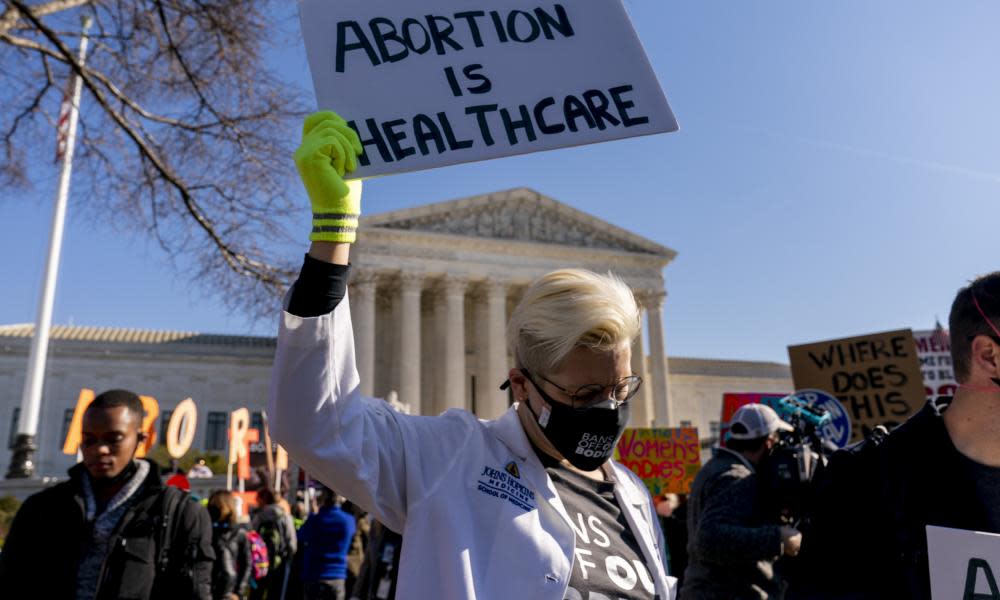Republicans confident supreme court will overturn abortion rights

As the supreme court weighs the future of abortion access in America, Republicans on Sunday expressed confidence that the landmark 1973 Roe v Wade decision would soon be overturned, paving the way for a raft of anti-abortion legislation around the country next year.
Related: ‘Historical accident’: how abortion came to focus white, evangelical anger
On Wednesday, the supreme court heard arguments over a Mississippi law that bans abortions after 15 weeks of pregnancy.
Observers suggested that the conservative supermajority on the court appeared poised to uphold the law and potentially go further by overturning Roe, which protects a woman’s right to choose. A decision is not expected until June next year.
Mississippi’s governor, Tate Reeves, told CNN’s State of the Union he had “some reason for optimism” after this week’s arguments.
He also confirmed that if the landmark ruling was overturned entirely, Mississippi would enforce a ban on almost all abortions in the state under a so-called “trigger law”.
“That is a yes,” Reeves said when asked if he would enforce the “snap-back” legislation.
“Because if you believe as I believe very strongly that that innocent, unborn child in the mother’s womb is in fact a child, the most important word when we talk about unborn children is not unborn, but it’s children.”
The position is not representative of the majority of Americans. According to recent polling, seven in 10 are opposed to overturning Roe v Wade while 59% believe abortion should be legal in all or most circumstances.
Nonetheless, according to the Guttmacher Institute, a global research and policy organisation “committed to advancing sexual and reproductive health and rights”, 21 US states are certain to attempt some form of ban on abortion should Roe be overturned, using laws already on the books.
Reeves caveated his answer by cautioning that Mississippi’s response to the forthcoming supreme court ruling would be “dependent upon how the court rules and exactly what those opinions allow us to do”.
He also noted that any decision would not lead to a national ban but could permit states to make their own determinations.
Mike Braun, a Republican senator for Indiana, echoed a number of Reeves’ arguments. He told NBC’s Meet the Press he wanted “abortions to be eliminated from the landscape” but would not be drawn into specifics regarding potential laws in his state.
Indiana has enacted 55 abortion restrictions and bans in the past decade, according to the Guttmacher Institute, but does not have a “trigger law” or equivalent on the books.
It is listed by the institute as one of five states without these laws that are still likely to move towards almost total bans should Roe be overturned.
“When it comes to things like abortion, I think it’s clear it’s time to turn it back to the states,” Braun told NBC.
Since former president Donald Trump installed three conservative justices to the supreme court in just four years, both sides of the fight over abortion rights have been preparing for a legal showdown.
According to the Associated Press, campaign finance data reveals that pro-abortion-access groups donated $8m in 2018 and more than $10m in 2020.
Those numbers outpace the public contributions of anti-abortion groups, which donated $2.6m in 2018 and $6.3m in 2020, according to data.
But the complexity of the network of nonprofits and “dark money” funds makes it difficult to produce a full accounting of the money flows.

 Yahoo News
Yahoo News 
